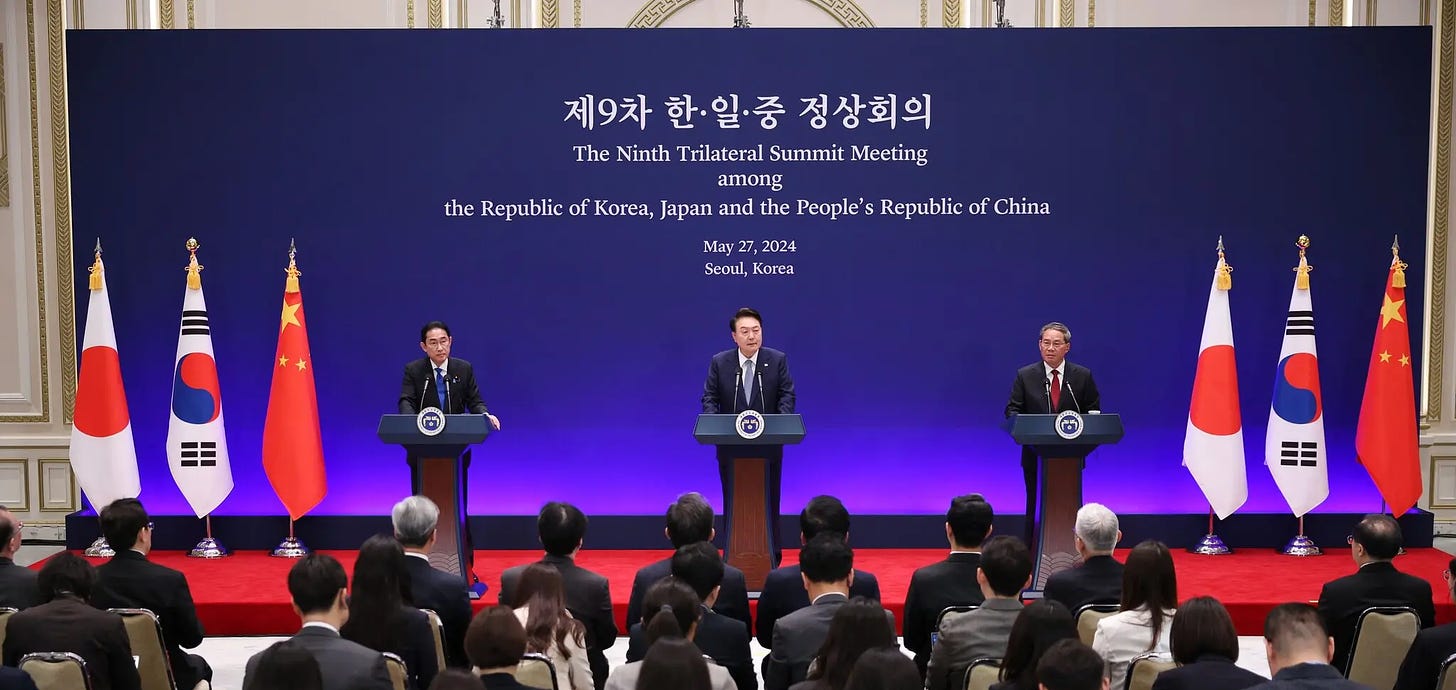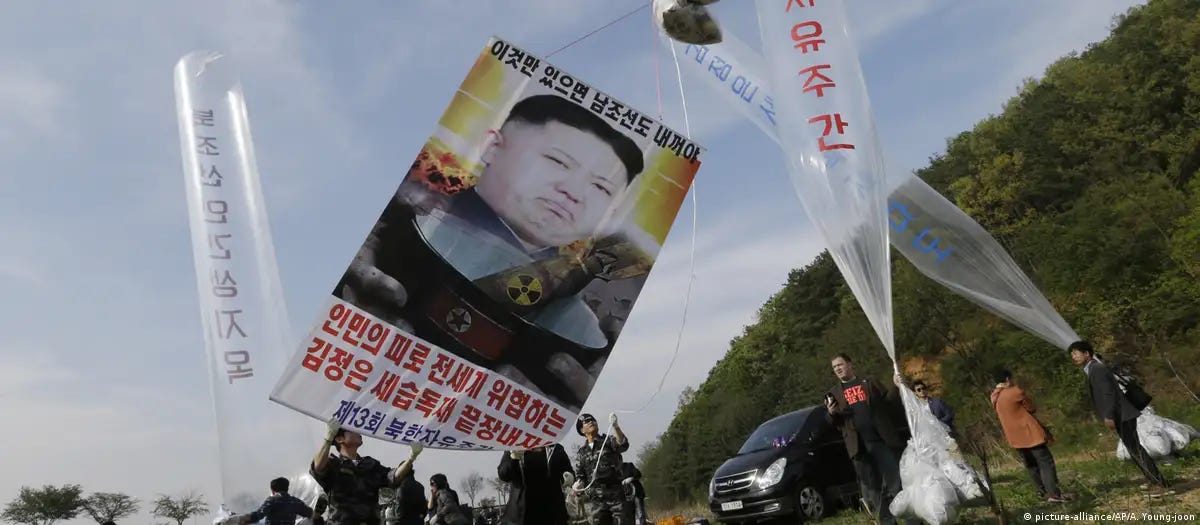The United States, in its bid to counter China's rising influence, is leveraging its alliances with South Korea and Japan. This strategy is not just a revival of Cold War dynamics but an intensified effort to establish a formidable front against China in the Pacific.
A recent, almost surreal incident highlights the tensions simmering in the region. North Korea launched balloons filled with garbage and manure towards South Korea, a symbolic retort to the decades-long practice of South Korea sending propaganda balloons northward.


Funded by US-backed organizations, these balloons carry leaflets and USB drives intended to undermine North Korean authority. This exchange of "trash balloons" underscores the absurdity and depth of the propaganda war, as North Korea mockingly framed its retaliation as a gesture of freedom of expression.
The "trash balloons" incident is emblematic of a broader shift. In recent months, North Korea has declared itself a nuclear state, asserting its right to maintain a nuclear arsenal. This move marks a significant departure from its previous stance, where reunification with South Korea was pursued more peacefully. Now, North Korea has firmly set its boundaries, ready to confront any escalation from the US and South Korea.
In a significant diplomatic effort, South Korea, Japan, and China convened for a trilateral summit, the first in nearly five years. The hiatus was due to a diplomatic spat between South Korea and China over the deployment of the US THAAD missile defense system in South Korea, which China opposed vehemently.

This summit aimed to reset relations amidst increasing US military consolidation in the Pacific. However, the results were limited, given the deep-seated military and economic dependencies South Korea and Japan have on the United States.
The US has been actively fostering a trilateral alliance with South Korea and Japan, effectively creating what some refer to as an "Asian NATO." This alliance is a crucial element in the US's strategy to counter China's growing influence. Recently, the US has given Japan the green light to remilitarize, aiming to double its military spending by 2027.
This signals a significant shift from Japan’s post-World War II pacifist stance, alarming neighboring countries and accelerating regional militarization, compelling other nations to bolster their defenses. South Korea's integration into this alliance further complicates the security dynamics, as it balances its economic interdependence with China against its security commitments to the US.
Beyond military alliances, the US's economic strategies are equally significant. With recent import tariffs against China and efforts to secure semiconductor supply chains, South Korea and Taiwan have become crucial in the US's economic war on China. By securing semiconductor supply chains and pushing for economic alliances that exclude China.
This strategy aims to undermine China's technological advancements and economic growth, but it also risks fragmenting global trade networks. South Korea and Taiwan, being pivotal players in the semiconductor industry, are caught in the crossfire, facing pressure to align with US interests while maintaining their trade relationships with China.
In response to US maneuvers, China is attempting to reset relations with South Korea and Japan, aiming to counterbalance the US's influence. The trilateral summit yielded some favorable outcomes for China, including talks of a free trade agreement and security dialogues. However, these diplomatic efforts face significant challenges due to the entrenched US influence over South Korea and Japan.
North Korea, although not a participant in the trilateral summit, remains a critical player in the regional dynamics. Its recent ballistic missile tests and stern statements underscore its refusal to denuclearize and its assertion of sovereignty.
The planned nuclear war exercises on the Korean Peninsula highlight the severity of the situation, emphasizing military readiness over diplomatic solutions.
This militaristic approach risks alienating potential allies and partners. By pushing an aggressive anti-China stance, the US may find it challenging to build broader coalitions needed to address global challenges. Countries that prefer a more balanced approach to international relations might distance themselves, seeking to avoid entanglement in a binary conflict between major powers.
As the US, South Korea, and Japan ramp up their military and economic strategies to counter China, critical issues like climate change, poverty alleviation, and humanitarian crises are increasingly pushed to the back burner.
This shift in focus isn't just a matter of misplaced priorities—it's a ticking time bomb. Ignoring these vital concerns exacerbates global inequalities and undermines efforts toward sustainable development. The fallout is felt most acutely by the world's vulnerable populations, but it also threatens the long-term stability and prosperity of the entire region.
By pouring resources into defense at the expense of collaborative solutions to pressing global challenges, these nations are fueling a dangerous cycle of conflict and neglect that jeopardizes global peace and security. The question remains: can they afford to continue down this path?






The US continues to borrow from China, or so I understand, and by now is many trillions in debt. Much of the debt is the billions sent to fund the increasingly dangerous proxy war in Ukraine. Not forgetting the US weaponry being aimed at Russian targets. How does that make any sense to anyone except rabid neocons and out of control crack addicts?
Not only does it seem that they can't afford it, but why on earth would they want to go down that path?